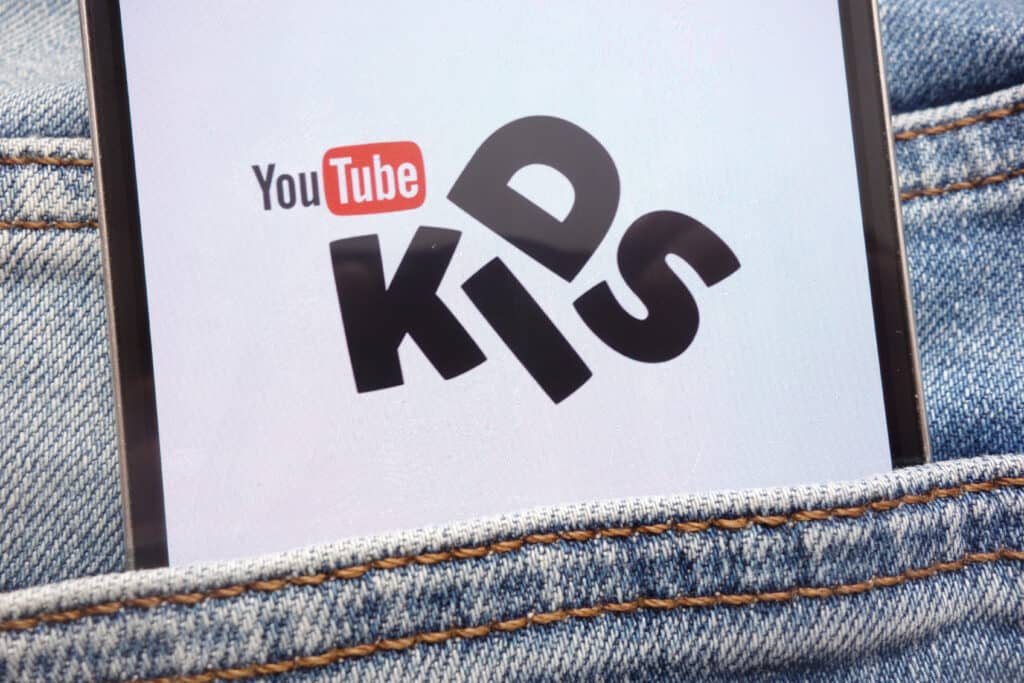-1024x683.jpg)
How content for small kids is big business
Most adults may not be paying attention, but the children’s entertainment industry has been completely disrupted in recent years. The universalization of personal computing and the maturation of streaming and video sharing sites has opened up a new era of kid’s programming. YouTube channels have started earning tens of millions of dollars creating content for kids.
China, in particular, has a hunger for children’s programming. Shows that spread on YouTube often aren’t translated into Chinese, meaning there are relatively little Chinese language nursery rhymes and animated content. There are massive opportunities for creators or media companies that translate their content into Chinese.
To understand China’s children’s entertainment industry it is essential to discuss children’s entertainment more broadly. How has this industry changed? Why are there so many more opportunities today than in the past?
Worldwide Growth of Children’s Entertainment
Before discussing children’s entertainment in China, it is critical to understand how dramatically children’s entertainment has changed in recent years. In the era of television, children had little control of the shows they watched. Smartphones and tablets allow children as young as two years old to pick the content they consume. While parents still have a say, young children have far more control than they ever had before. This has led to a greater preference for short videos and songs squarely focused on children rather than longer shows that were written to be tolerable to parents.

Not only has children’s entertainment shifted to meet the interests of the child, but there are also opportunities for new entertainers to access their audience. Children’s entertainment has, understandably, always been a very guarded genre of media. A few companies, such as big movie studios and media agencies, had almost complete control of the content children saw. Businesses like Disney would only allow a few people to access their audience. With YouTube, anyone can go around the gatekeepers and try to attract subscribers.
Children’s YouTube has become a massive business. CocoMelon – a channel specialized in animated musical content for young children – is worth an estimated 460 million USD. Ryan’s World – a channel featuring a mix of toy reviews and short sketches – is estimated to be worth 80 million USD. There is also a vibrant ecosystem of properties making hundreds of thousands or millions of dollars per year. These channels have also created revenue sources outside of YouTube, such as clothing, toys, and complete shows on streaming platforms.
Access to the Internet in China
Some people may wonder how these trends are affecting China. After all, China is still considered a “developing nation” in the eyes of some people. In reality, China has a relatively high rate of internet penetration. According to a 2019 survey, over 54% of the population had access to the internet. More Chinese people are on the internet compared to any other nationality. 54% internet penetration is only slightly lower than “developed” countries such as Italy, which has only 61% penetration. Internet usage is also growing, and it is likely over 60% today.
While Chinese people may have access to the internet, some may wonder if they are using it similarly to westerns. Data suggests that the Chinese have similar usage patterns to North Americans and Europeans. A 2021 study found that China’s average daily internet usage was 322 minutes or about 5-and-a-half hours. That time includes a mix of streaming, social media, music, and gaming.
A 2019 report suggests that internet minors have even better access to the internet than older generations. An estimated 175 million children, or approximately 93% of the under-18 population, have access to the internet. Personal devices are ubiquitous, with 74% of the children reporting having their own devices. Some of the most common uses for the internet are education, gaming, and streaming.
While there is no detailed data available about internet usage among younger children, there are strong indications that they would have similar usage levels to the West. That is good news for content creators looking to expand to a new market. China has tremendous potential for developing or creating an audience.
China’s Cultural Focus on Children
China has a reputation for being a culture that values family and cares intensely about its children. While it is difficult to tell how far back this stereotype has been around, it is clear that the “One Child Policy” legacy has been instrumental in cementing this impression. Starting in 1980, the “One Child Policy” incentivized families to limit the number of children they had. This meant that each family would focus their energy and financial resources on one child.

While many cultures see themselves as family-centric, China puts its money where its mouth is. The children’s goods and services market in China is estimated to be worth 695 billion USD. Almost half of the Chinese families spend between 30-50% of their income on clothing, feeding, and entertaining their children. Chinese families also invest heavily in their children’s education, with average spending of over 42,000 USD from primary school to undergraduate – higher than nations such as Canada, the UK, and Australia.
China’s government is also taking action to increase China’s birth rate. The “One Child Policy” was relaxed to a “Two-Child Policy” in 2015, and plans have also been announced to move to a “Three Child Policy.” In addition, China’s Communist Party is working to reduce the costs of childbirth, parenting, and education.
Overall, China’s government has made it clear that they will incentivize parents to have more children. If these interventions are effective, they will increase the number of children and stimulate the country’s children’s entertainment industry.
How to Take Advantage of the Chinese Children’s Entertainment and Nursery Rhyme

These factors – the shift in children’s entertainment, China’s access to the internet, and Chinese cultural norms around children – have given rise to a tremendous opportunity in Chinese children’s entertainment. Children want content such as nursery rhyme covers and animated shows, and parents are willing to spend to access quality educational content.
Due to China’s internet restrictions, YouTube and most streaming platforms are banned in China. As a result, while many content creators or media companies may want to reach Chinese children, they don’t know-how. To access China’s children’s entertainment industry, you need to work with experts who understand the landscape and can provide guidance on how to offer your content.
DingTech is a world leader in multimedia translation and localization, specializing in the Chinese market. Not only are we able to offer script translation and dubbing services, but we also work with experienced songwriters and singers to cover international nursery rhymes in Chinese. Our team also provides post-editing services and consulting on Chinese media strategy. We are a one-stop-shop for accessing the Chinese children’s entertainment market. Click here to learn more about our Chinese nursery rhymes cover services.
Was this article useful to you?
0 / 5. 0
很抱歉,这篇文章对您没有用!
让我们改善这篇文章!
告诉我们我们如何改善这篇文章?

-scaled.jpg)







